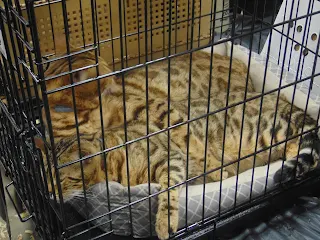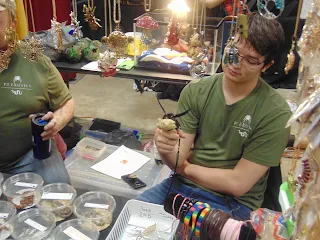The following is a letter by a Yankee
lieutenant in Union General William T. Sherman's army to his wife while camped near Camden, South Carolina on Sunday, February 26,
1865. This letter is addressed to Mrs. Thomas J. Myers, Boston, Massachusetts.
My Dear Wife,
I have no time for particulars. We have had a glorious time in this
State. Unrestricted license to burn and plunder was the order of the
day. The chivalry have been stripped of most of their valuables. Gold
watches, silver pitchers, cups, spoons, forks, and so forth are as
common in camp as blackberries. The terms of plunder are as follows:
the valuables procured are estimated by companies. Each company is
required to exhibit the result of its operations at any given place.
One fifth and first choice falls to the commander in chief and staff;
one fifth to corps commander and staff; one fifth to field officers; and
two fifths to the company.
Officers are not allowed to join in
these expeditions unless disguised as privates. One of our corps
commanders borrowed a rough suit of clothes from one of my men and was
successful in his place. He got a large quantity of silver among other
things, an old milk pitcher, and a very fine watch from a Mr. DeSaussure
of this place. DeSaussure is one of the first families of South
Carolina and was made to fork out liberally.
Officers over the
rank of captain are not made to put their plunder in the estimate for
general distribution. This is very unfair and for that reason in order
to protect themselves the subordinate officers and privates keep
everything back that they can carry about their persons such as rings
earrings, breastpins, and so forth; of which, if I live to get home, I
have a quart - I am not joking - I have at least a quart of jewelry for
you and the girls and some No. 1 diamond pins and rings among them.
General Sherman has gold and silver enough to start a bank. His share
in gold watches and chains alone at Columbia was two hundred and seventy
five. But, I said I could not go into particulars. All the general
officers and many besides have valuables of every description down to
ladies pocket handkerchiefs. I have my share of them too. We took gold
and silver enough from the d_ _ _ _ d rebels to have redeemed their
infernal currency twice over. I wish all the jewelry this army has
could be carried to the Old Bay State. It would deck her out in
glorious style, but alas, it will be scattered all over the North and
Middle States.
The d_ _ _ _d _iggers, as a general thing,
preferred to stay at home particularly after they found out that we
wanted only the able bodied men and to tell the truth the youngest and
best looking women. Sometimes we took them off by way of repaying
influential Secessionists. But, a part of these we managed to lose
sometimes in crossing rivers - sometimes in other ways.
I shall
write you again from Wilmington, Goldsboro, or some other place in
North Carolina. The order to march has arrived and I must close
hurriedly. Love to grandmother and Aunt Charlotte. Take care of
yourself and the children. Don’t show this letter outside of the
family.
Your affectionate husband Thomas J. Myers, Lieutenant
PS: I will send this by flag of truce to be mailed, unless I have an
opportunity of sending it to Hilton Head. Tell Lottie I am saving a
pearl bracelet and earrings for her. But, Lambert got the necklace and
breastpin from the same set. I am trying to trade him out of them.
These were taken from the Misses Jamison, daughters of the President of
the South Carolina Secession Convention. We found these on our trip
through Georgia. TJM
Source: Butler and his Cavalry in the War of Secession, 1861-1865 by Ulysses Robert Brooks, ISBN-13:
978-0548647134, published in 1909, (Pages 452-453).
 |
| Downtown Columbia, South Carolina taken from the steps of the South Carolina capitol building after Sherman's invasion in February, 1865. |
Never Forget! |
|







































































































































